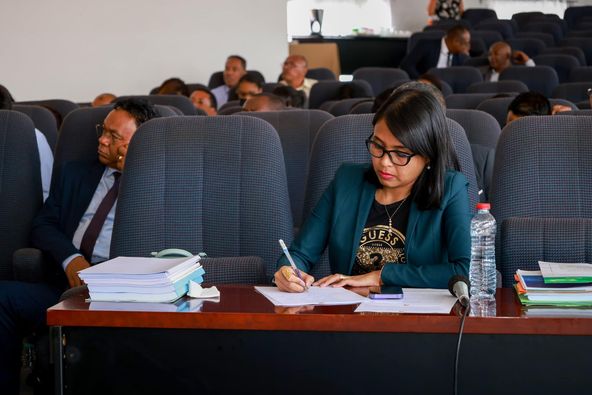For a long time, economic and financial experts as well as other thought leaders in Nigeria advocated for reforms that would place the nation on the path of sustainable growth; however, how they would be implemented was never agreed upon.
Ultimately, so many reforms and initiatives have been embarked upon in the country to ensure the economy blooms beyond mere rhetoric.
This article presents an analysis of recent financial policies in Nigeria and how they have affected the lives of Nigerians.
The past administration of Muhammadu Buhari in Nigeria announced several financial initiatives targeted at uplifting the country.
There is the Finance Bill, which, among others, intends to reform domestic tax laws, introduce tax incentives for investments in infrastructure and capital markets, and improve the business environment. Also, there are the Tax and Fiscal Incentives for Start-ups.
One of the most recent ones under the Buhari administration from 2022, which extended into 2023, was the naira redesign policy by the Central Bank of Nigeria, targeted at enhancing the cashless policy, curbing currency fraud and corruption, managing inflation, reducing the money in circulation, and, among others, helping to address the issue of kidnapping for ransom, which had become a menace across the country.
Was the policy successful? Well, to the average Nigerian and some economists, the policy was far from being termed successful as it attracted much criticism from the start. Given the state of the economy at the time of its implementation, the policy, rather than heading towards its intended goals, brought more hardship to the people.
In the long run, Nigerians lived through cash shortages and the rejection of old notes, which in turn negatively impacted businesses and households, which found it difficult to pay for basic needs due to the deadline set for the expiration of the existing old news and the scarcity of the new ones. But eventually, the deadlines were suspended by court orders, freeing Nigerians a bit from unwarranted hardships.
Fast forward to the new administration of President Bola Tinubu, who assumed office on May 29, 2023. With new policies came new policies with far-reaching impacts on the people and their standards of living.
The first of such policies was the announcement of the removal of subsidies on fuel by President Bola Tinubu in his inaugural speech, which laid the foundation upon which other financial policies are currently standing.
While the removal of subsidies on fuel didn’t come as a surprise to many Nigerians, the timing, however, took them unaware and brought about hardship occasioned by the increases in the prices of goods and services as well as transportation.
In addition to the subsidy removal, the Central Bank of Nigeria announced changes to its foreign exchange market operations. The changes include the unification of all segments of the forex exchange market to allow for transparency in the market as well as build up investor confidence.
These two policies, though well intended, have exerted pressure on the economy of Nigeria and affected all sectors of the economy negatively, bringing about inflation and ripple effects on the prices of goods and commodities.
Presently, according to the National Bureau of Statistics, inflation in Nigeria stands at 28.20%, with prices of everyday consumer foods on the high side.
Many have described the policy as good but ill-timed, while others see it as putting the ‘cart before the horse’.
Being an economy driven mostly by consumption, these two initiatives are having quite a lot of impacts on household consumption. For instance, while foreign currencies can now be bought and sold at market rates as against the hitherto fixed rate of the CBN, it has fluctuated so much on the high side in recent times and added to the inflationary pressures of goods and services, putting the average Nigerian at risk of living a substandard life.
For the fuel subsidy removal, it has and is still hurting the manufacturing sector so badly through increased production costs, which have affected companies and businesses as well as households with high purchasing power.
As a result of the negative impacts of these policies on the manufacturing sector in Nigeria, some companies have closed their manufacturing outfits in the country, thereby leading to increased prices among the few in operation and, in turn, more impoverishment of the people.
Some of these companies include GlaxoSmithKline (GSK) and Procter & Gamble (P&G), whose closure of their Nigerian production unit has led to job losses affecting several households and individuals whose lack of productivity has affected their income and reduced their standards of living.
Contrary to that, the nation at large has recorded gains from the subsidy removal as it has increased revenue savings. For instance, as of November, figures from the National Bureau of Statistics showed that the Nigerian government had saved about N1.45 trillion from earnings generated from the removal of subsidies between June and September.
In terms of the unification of the forex rate, it also has its positives, as it is believed to be one of the contributing factors to the net trade surplus reported in the third quarter, Q3 of 2023, as the latest Foreign Trade figures from the National Bureau of Statistics showed that the net trade surplus for Q3 stood at N1.88tn, a first since Q2’2018.
Also, Nigerian commercial banks have tales of joy as the unification has helped them record significant revaluation profits estimated at N1.7 trillion in the first half of 2023.
In all, the benefits that have so far come with these policies have been minimal compared to the hardship they have brought on Nigerians, most of whom have been reduced to the lowest ladder of life as a result of the deteriorating value of the naira and inflation that has become the norm.
Though it can be said that the initiatives, if well implemented, would be of immense advantage to Nigerians, the current level of poverty in the land has put Nigerians at the edge of “survival mode,” hence the saying “pains now; gains later,” often preached by those in the corridors of power across Nigeria, can no longer hold water.


